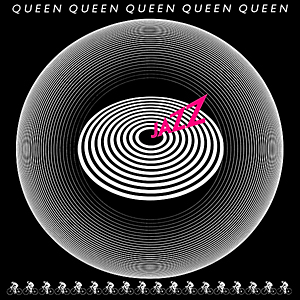The scrobbler below works in the same way an Ipod or an mp3 player does. Just press play, sit back and enjoy. There are 200 songs covering a wide range of genres, from R&B to pop, from modern Brazilian music to jazz and blues.
Bye, bye for now.
"The ache for home lives in all of us. The safe place where we can go as we are and not be questioned." (Maya Angelou)


.jpg)
.jpg) down like the mounds of soil on the pitch. The nail on the coffin was that night in Moscow.
down like the mounds of soil on the pitch. The nail on the coffin was that night in Moscow..jpg) l duty. He probably chose to forget about players' discontent with Mourinho’s replacement, Avram Grant, who, by the way, was sacked by the club’s hierarchy following his defeat in the European Cup Final.
l duty. He probably chose to forget about players' discontent with Mourinho’s replacement, Avram Grant, who, by the way, was sacked by the club’s hierarchy following his defeat in the European Cup Final. on can John Terry get from a game that was almost won, but wasn’t? And that’s that the sad reality of sport, almost counts for nothing. Who knows? Maybe Terry could learn a thing or two from Lorna if they ever ran into each other.
on can John Terry get from a game that was almost won, but wasn’t? And that’s that the sad reality of sport, almost counts for nothing. Who knows? Maybe Terry could learn a thing or two from Lorna if they ever ran into each other.


.JPG)
+with+bacon+and+onion.jpg)
So, which performers have I invited for my farewell party? Well, have a butcher's at the playlist below and pick up what you like (Note: butcher's is a Cockney rhyming slang word, butcher's hook=look)
Nitin Sawhney & Sharon Duncan - Eastern Eyes
So Flute - St. Germain
Faith Evans - Love Like This (live )
Manu Chao - Clandestino (live)
Afro Blue -Mongo Santamaria
Chico Buarque - Vai Passar
Stevie Wonder - Superstition (live)
Agua-Los Van Van
Copyright 2008

Living in a Bilingual World has very limited patience for pretentious newspapers columnists with lofty linguistic ambitions, but my eye has been caught recently by certain articles I have read both in print and on the internet where the ‘c’ word has been included gratuitously.
Of course, there is a chance you are already familiar with the ‘c’ word. If you speak Spanish, that is. And if you hail from Latin America as I do, you will find it as offensive as I do. I can’t even bring myself to write it so I will have to do the same they do sometimes in written publications; to place asterisks strategically; do not fret, though, you will recognise it immediately.
C stands for c******. Got it? Seven letters. Seven gratuitously offensive letters (Spaniards do not count as I know that they love cursing left, right and centre).
So, why? Why has it become a habit to band this four-letter word about (admittedly, it is actually seven letters, but let’s not get too picky about it, shall we?) as if it was Angelina Jolie’s latest adopted Third World orphan?
I think the reason stems from the desire to sound cool in another language. Given the shortcomings in the learning and teaching of foreign languages in the UK and to which I have referred before here in this space, there’s a zeal to prove that at least when it comes to swear words, British journalists are up to scratch. Timothy Garton Ash, one of my favourite columnists in The Guardian, has used it (sin asteriscos, mind). Catherine Bennett, from The Observer and another features writer I worship, can’t let go of it (or them, and no, no pun intended). Over at the holier-than-thou Daily Telegraph, Andrew Grimson reminds readers that even Liberal Democratic leaders must remember where they have theirs. In case they lose them, maybe. Even The Times is at it with them. And it is not only the Brits; their German counterparts are guilty of the same crime, too.
It is a sad situation when you have to explain to a ten-year-old (Son), that no, this is not a nice word, that a man’s private parts are usually asterisked in the British media (except in The Guardian and The Observer where they delight in using all kinds of expletives without covering them up) and that some words sound very strong to certain cultures.
And what about Son? Well, what about Son?
- How do you pronounce this word, then, papi?
- Well, as you know, the ‘j’ sounds like the English ‘h’. But I bet they don’t know that.
N.B.: For non-Spanish speakers, just in case it has not been obvious to you, either by the tone of the column or by the photo included in it, the 'c' word I alluded to in the above post is a swear word for 'testicles' in Spanish.
© 2008
 Killer Opening Songs act like musical versions of the Pied Piper of Hamelin. They entice and mesmerise you and you can’t help but carry on listening to the whole record as you are led away from your comfort zone. That is exactly what happened to me the first time I heard ‘Fire on Babylon’. The ferocious musical onslaught at the beginning of the album ‘Universal Mother’ is provided by a bassline that neither changes its rhythm nor allows its vim to wane throughout the whole track. It remains constant, indomitable, rebellious and solipsistic. This is coupled with some of the angriest lyrics you can ever find in a Killer Opening Song. Sinead O’Connor sings about betrayal, abandon and abuse and does it with the same impetus that saw her shedding a couple of tears at the end of that memorable video ‘Nothing Compares 2U’ (and saw some of us doing the same).
Killer Opening Songs act like musical versions of the Pied Piper of Hamelin. They entice and mesmerise you and you can’t help but carry on listening to the whole record as you are led away from your comfort zone. That is exactly what happened to me the first time I heard ‘Fire on Babylon’. The ferocious musical onslaught at the beginning of the album ‘Universal Mother’ is provided by a bassline that neither changes its rhythm nor allows its vim to wane throughout the whole track. It remains constant, indomitable, rebellious and solipsistic. This is coupled with some of the angriest lyrics you can ever find in a Killer Opening Song. Sinead O’Connor sings about betrayal, abandon and abuse and does it with the same impetus that saw her shedding a couple of tears at the end of that memorable video ‘Nothing Compares 2U’ (and saw some of us doing the same).
.JPG)